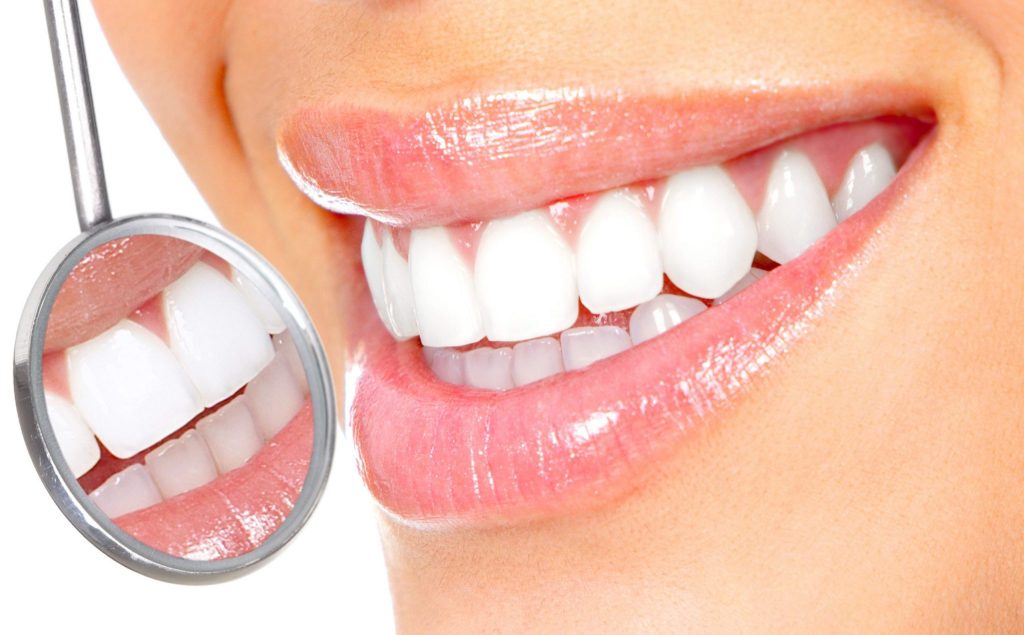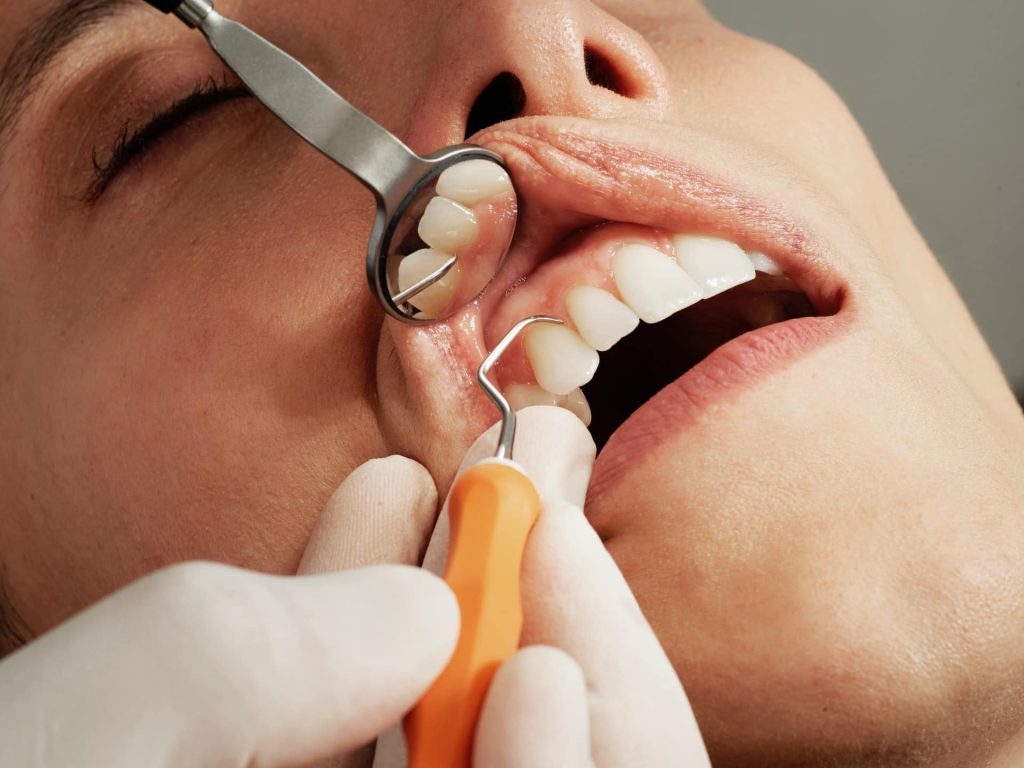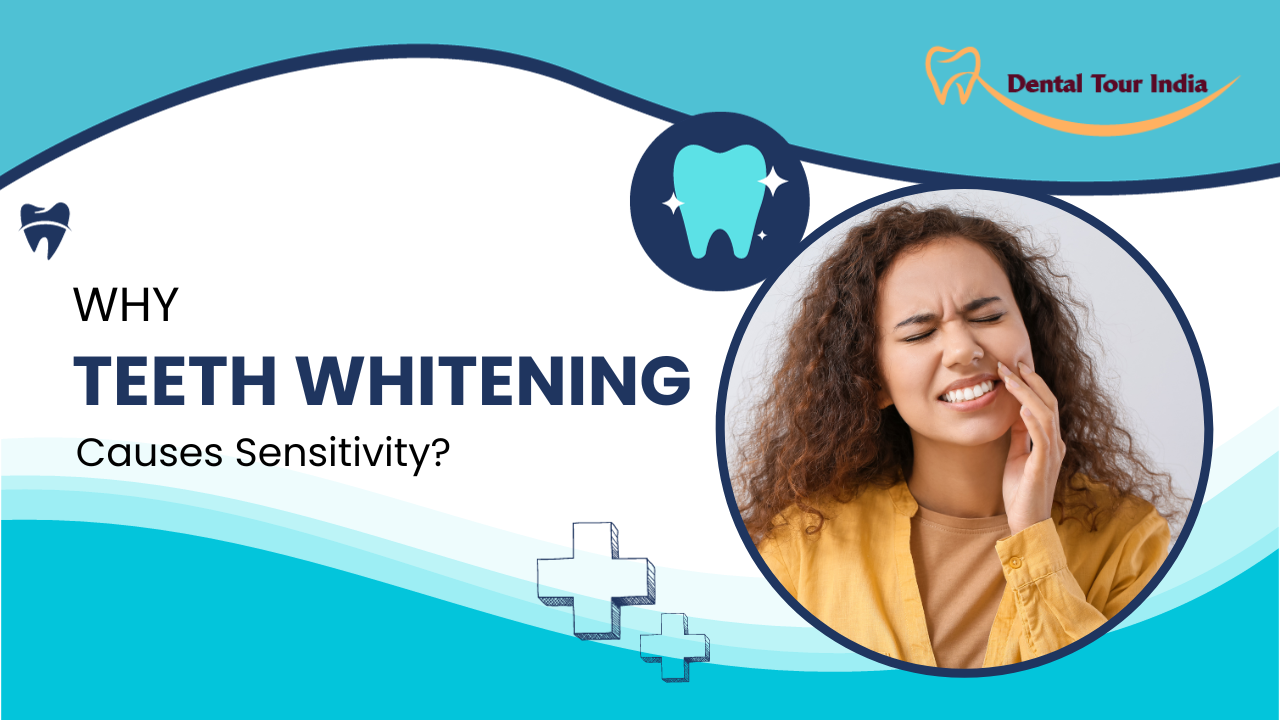A bright, white smile is often considered a symbol of health and vitality. With the rise of social media and selfies, the desire for whiter teeth has grown exponentially in recent years. Teeth whitening procedures have become increasingly popular, offering a quick and effective way to achieve that coveted smile. However, one common side effect of teeth whitening that many people experience is sensitivity. In this blog, we will delve into the science behind why teeth whitening causes sensitivity and explore ways to mitigate it.

The Basics of Teeth Whitening
To understand why teeth whitening can cause sensitivity, it’s important to grasp the fundamentals of how the process works. Teeth whitening is a dermatology procedure that aims to remove stains from the teeth, resulting in a brighter and more attractive smile. There are primarily two methods for teeth whitening:
- In-Office Whitening: This is performed by a dentist and involves the application of a highly concentrated whitening gel to the teeth. A special light or laser may be used to activate the gel and boost its effectiveness.
- At-Home Whitening: Over-the-counter products and dentist-prescribed kits are available for at-home teeth whitening. These typically include trays or strips with a lower concentration of whitening agents.
Regardless of the method, the active ingredient in most teeth-whitening products is carbamide peroxide and hydrogen peroxide. These chemicals work by penetrating the enamel (the outermost layer of the teeth) and breaking down the molecules, causing discoloration.

The Link Between Teeth Whitening and Sensitivity
Now, let’s explore why teeth whitening can lead to sensitivity:
- Enamel Penetration: As mentioned earlier, the whitening agents used in teeth whitening procedures penetrate the enamel to reach the discolored molecules beneath. This process can temporarily weaken the enamel, making it more porous and vulnerable to external stimuli.
- Dentin Exposure: Beneath the enamel lies another layer of the tooth called dentin. Dentin contains tiny channels called tubules that connect to the nerve center of the tooth, known as the pulp. When the enamel is compromised during the whitening process, dentin becomes more exposed.
- Nerve Irritation: Dentin contains nerve endings that are highly sensitive. When it is exposed due to enamel thinning, external factors such as temperature, pressure, or certain substances can stimulate the nerve endings, causing discomfort or pain.
- Dehydration: Teeth whitening agents can temporarily dehydrate the teeth. Dehydrated teeth are more susceptible to sensitivity because they lack the moisture that typically insulates and protects them.
- Concentration and Duration: The concentration and duration of the whitening treatment can also contribute to sensitivity. Higher concentrations of whitening agents or prolonged exposure can increase the likelihood of enamel and dentin damage.

Mitigating Teeth Whitening Sensitivity
While sensitivity is a common side effect of teeth whitening, there are several strategies to mitigate or manage it:
- Consult with a Dentist: Before getting done any teeth whitening procedure, it’s essential to consult with a dentist. They can evaluate your oral health and suggest the most suitable whitening method for you. Dentists can also provide professional guidance on managing sensitivity.
- Use Desensitizing Toothpaste: Desensitizing toothpaste contains active ingredients like potassium nitrate or strontium chloride, which can help alleviate tooth sensitivity. Use it before and after your whitening treatment for added protection.
- Choose Lower Concentrations: If you’re using at-home whitening products, opt for those with lower concentrations of whitening agents. This may reduce the risk of sensitivity while still providing noticeable results over time.
- Shorter Sessions: If you’re using at-home whitening kits, consider shorter treatment sessions spread over a more extended period. This approach can minimize the risk of overexposing your teeth to whitening agents.
- Custom-fitted Trays: For at-home whitening, custom-fitted trays provided by a dentist can ensure better coverage and minimize contact between the whitening gel and your gums, reducing the risk of gum irritation and sensitivity.
- Avoid Trigger Foods and Drinks: After teeth whitening, avoid too hot or cold drinks and foods, as well as acidic items, for a short period. These can trigger sensitivity. Stick to lukewarm or room-temperature items.
- Stay Hydrated: Keeping yourself well-hydrated can help maintain moisture in your teeth, reducing the chances of sensitivity.
- Limit Whitening Frequency: Overuse of teeth whitening products can lead to increased sensitivity. Follow the recommended guidelines and avoid frequent touch-ups.
- Professional Supervision: Consider in-office whitening procedures performed by a dentist. They can closely monitor the process and make adjustments as needed to minimize sensitivity.
Conclusion
Teeth whitening is a well known cosmetic procedure that can enhance your smile and boost your self confidence. However, the temporary sensitivity it can cause should not deter you from pursuing a brighter smile. By understanding the science behind why teeth whitening causes sensitivity and following the mitigation strategies mentioned above, you can achieve the results you desire with minimal discomfort. Always consult with a dental professional to choose the safest and most effective approach to teeth whitening for your unique needs. Remember, a beautiful smile is worth preserving, and with the right care, you can enjoy the benefits of teeth whitening without the drawbacks of sensitivity.

